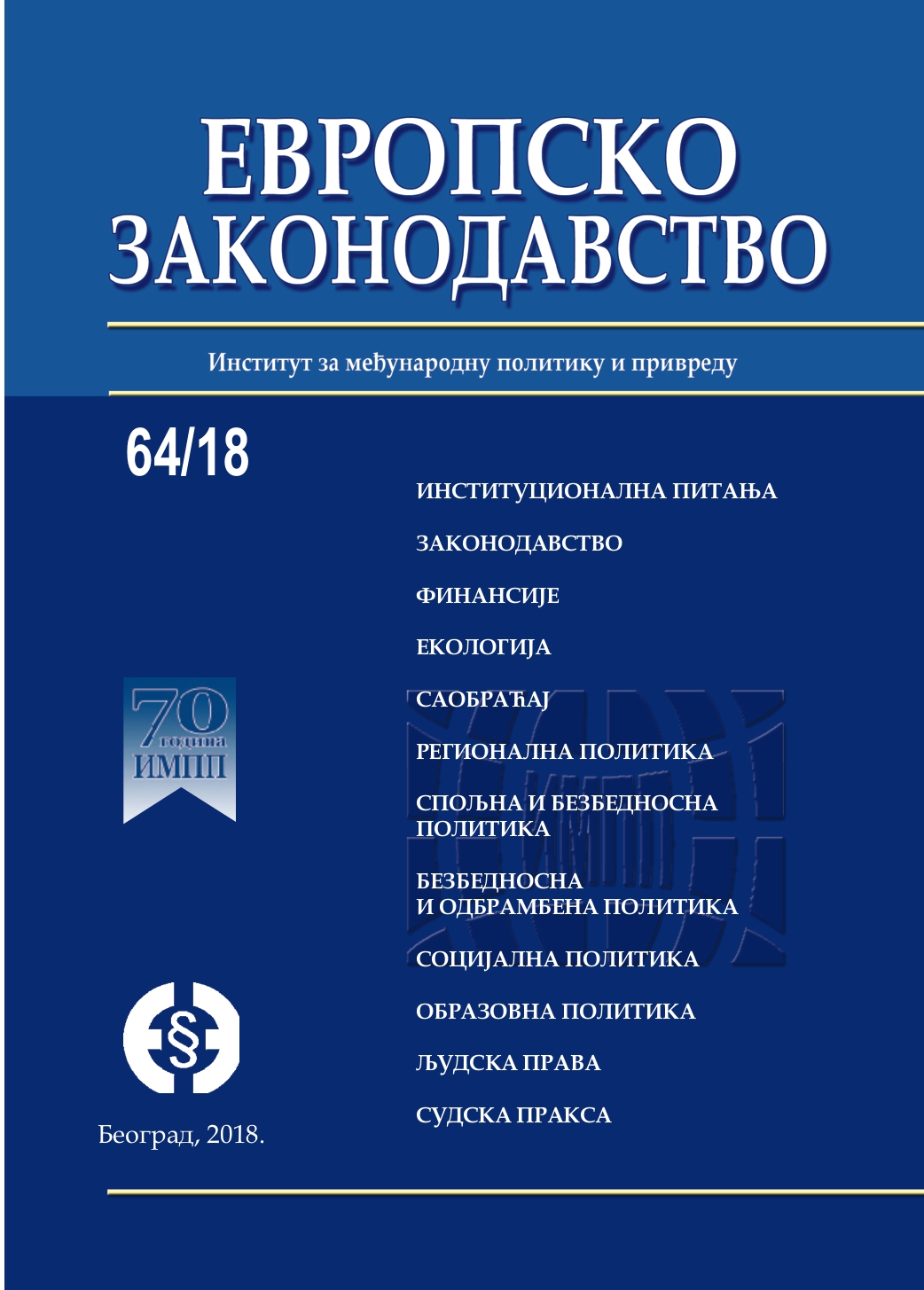Употреба родно осетљивог језика у унутрашњем праву и европски стандарди
Use of gender-sensitive language in internal law and european standards
Author(s): Žarko RadićSubject(s): Human Rights and Humanitarian Law
Published by: Институт за међународну политику и привреду
Keywords: Linguistic human rights;gender sensitive language;non-sexist language;legislative drafting
Summary/Abstract: In the 21st century Europe, the issue of linguistic human rights and gender sensitive language in the official and public use becomes increasingly significant. It has become an increasingly interesting topic for social sciences, public policies and media. The gender-sensitive language is considered the language of gender equality. It is required that the language used in the official document gives women and men and their activities equal value and equal visibility. Acknowledging the European standards and National Strategy for Gender Equality from 2016-2020, in this paper the author analyses the possibility of using the gender-sensitive language in legal texts from the aspect of legislative drafting. He does so by applying dogmatic, normative and comparative law method. At the end of the paper, the author considers the importance of the studied issues for the Republic of Serbia and its road to the membership in the European Union. He concludes that in order to make consistent use of the gender-sensitive language in regulations obligatory, the proper amendments to the Common Methodology of Legislative Drafting should be adopted by the National Assembly of the Republic of Serbia.
Journal: Европско законодавство
- Issue Year: 2018
- Issue No: 64
- Page Range: 224-250
- Page Count: 27
- Language: Serbian

